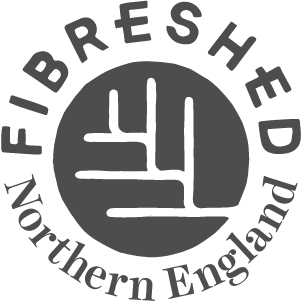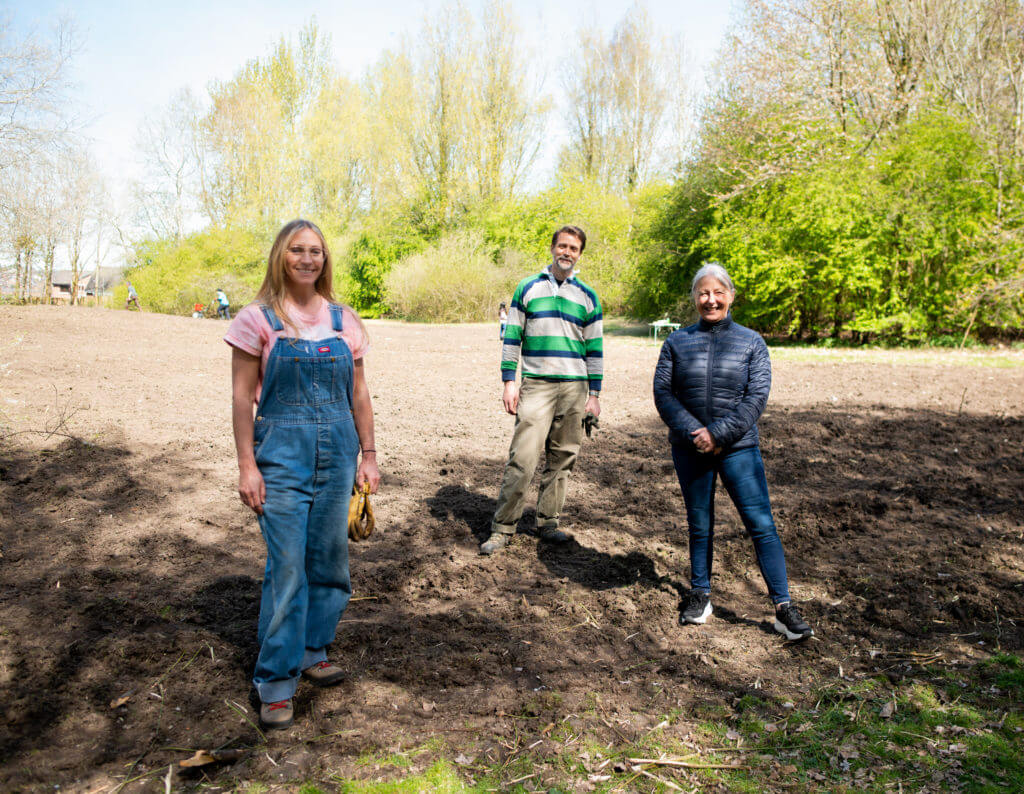
Growing Jeans
On Friday 23rd April 2021, the Homegrown Homespun project planted it’s first textile crop of flax and woad on disused land beside the historic Leeds to Liverpool canal, in the middle of Blackburn. Homegrown Homespun is a collaboration with designer Patrick Grant, his social enterprise Community Clothing, the British Textile Biennial and North West England Fibreshed. We were joined by flax farmers, Simon and Ann Cooper from Flaxland along with a small army of helpers who tried their hand with his vintage seed drill, pruned foliage and cleared an enormous amount of rubbish. Over 150 bags of litter were picked up by the local (and not so local) community who came out in force to support us on the day.
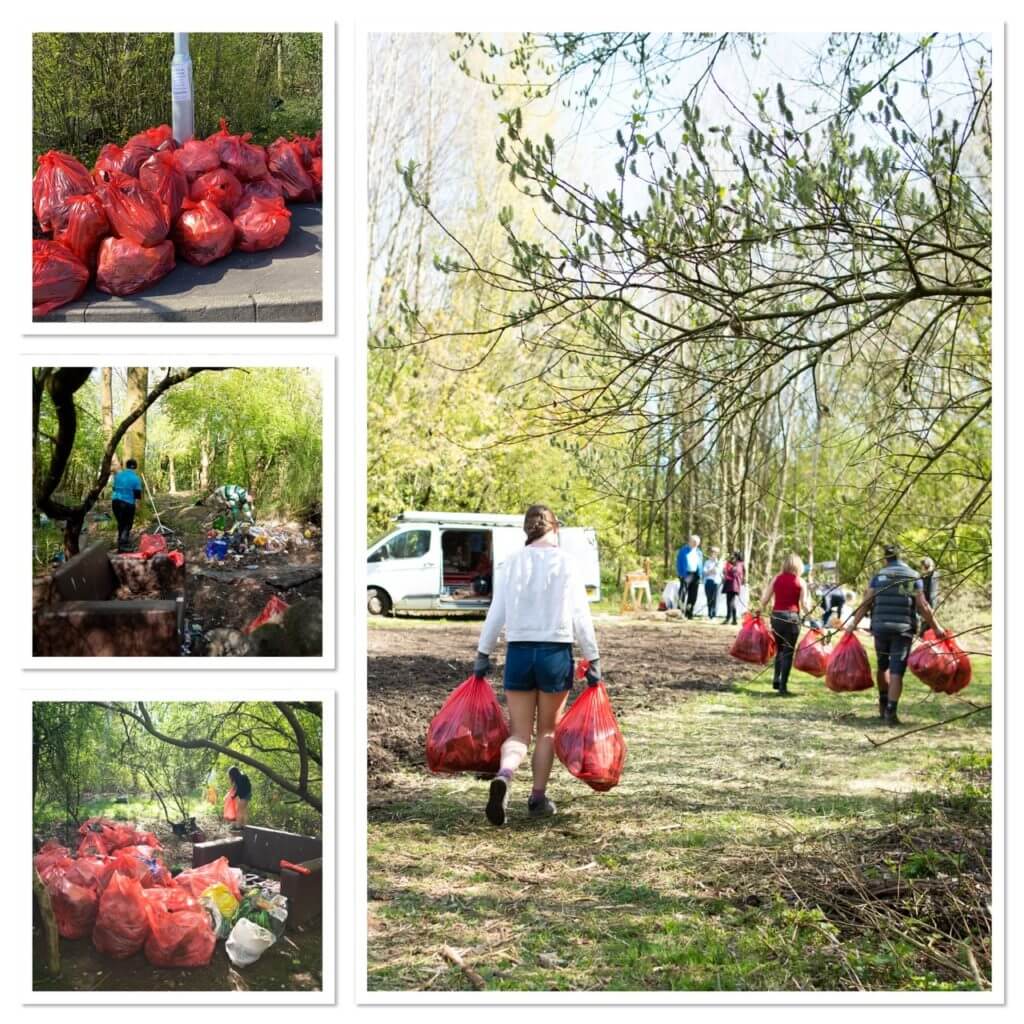
This site had been used for fly-tipping and whilst the central, grassed area was already clear for our crop, we wanted to make the surrounding woodland safer and more accessible for dog walkers by not only removing debris, but by creating paths and giving the trees a prune which revealed the canal view.
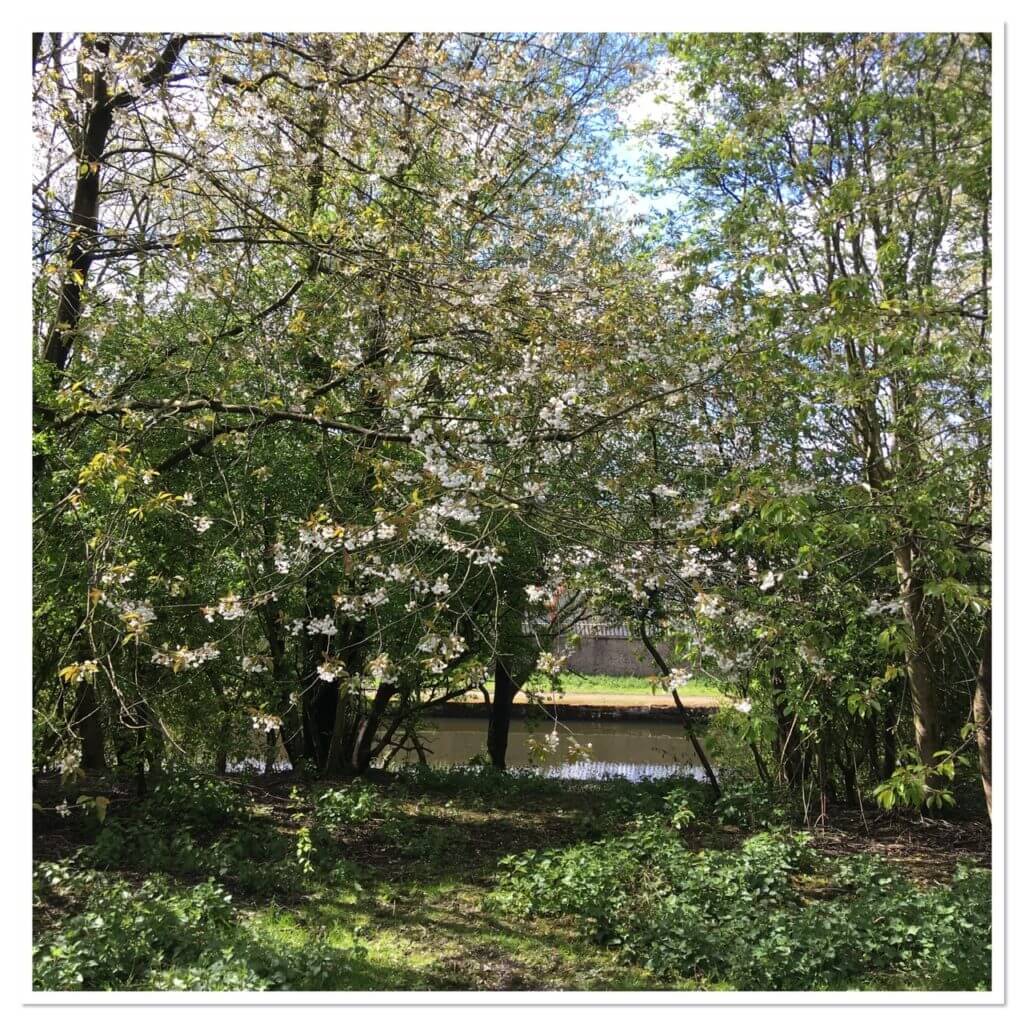
As these crops will need protecting from footfall, we were very grateful to the construction students at Blackburn College who fitted fencing, in part donated by our project manager Alex’s Dad Jan from OEP Building Services.
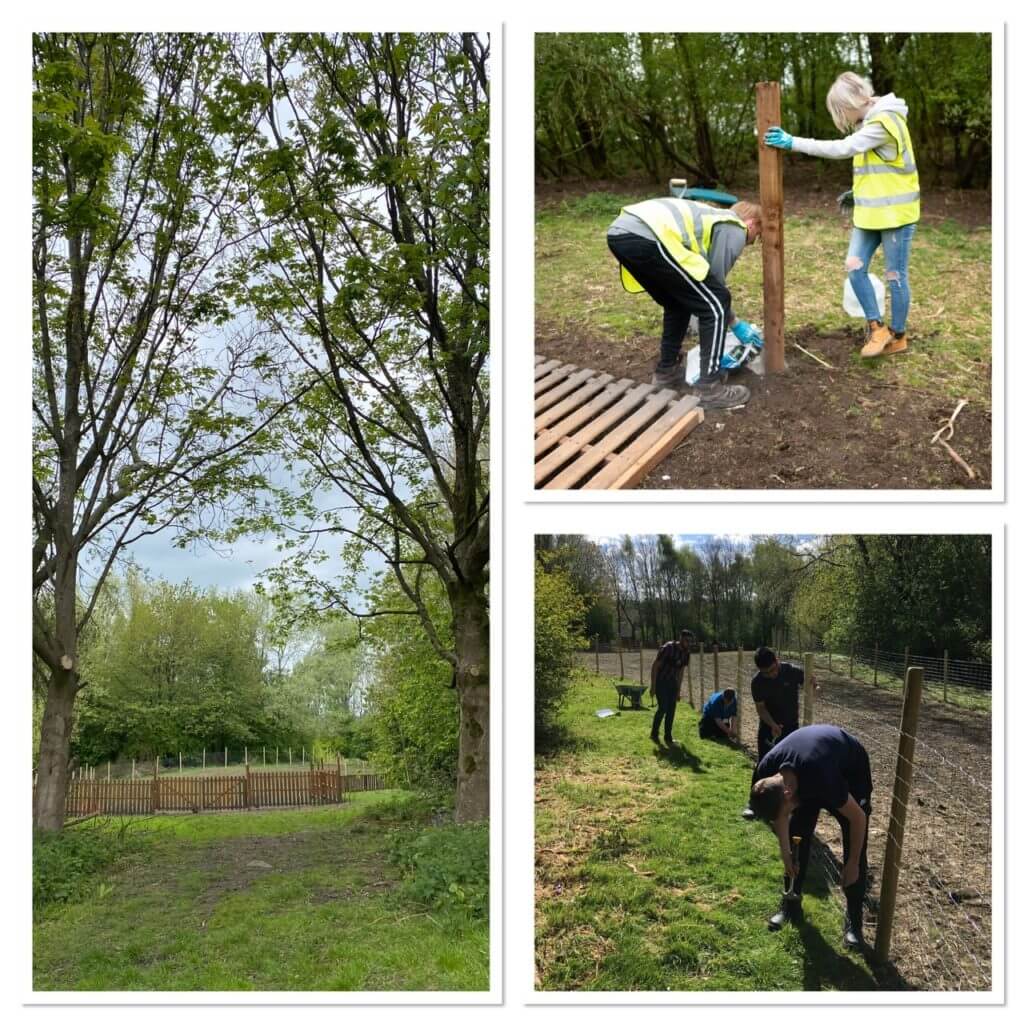
Restoring Britain’s Textile Heritage
Flax is still an agricultural crop in this country used to produce linseed but the fibre variety hasn’t been grown commercially since the 1950s, when the last processing equipment was decommissioned by the Sandringham Estate. Prior to that, the British Isles had a rich heritage of linen production dating back at least 5000 years to the Bronze Age. In the 18th Century, the British Isles produced around 50 million yards of linen cloth per year, which required hand processing 9000 tonnes of plant fibre.
Woad, our native source of indigo pigment, was also grown prolifically but along with the majority of other natural dyes, died out with the advent of the Industrial Revolution, when 18 year old chemist, William Henry Perkin accidentally discovered synthetic dyes whilst experimenting with coal tar.
So after thousands of years of British textile heritage, generations of inherited skills were all but lost as the crafts of linen spinning and natural dyeing were consigned to hobbies. We owe a debt of gratitude to figures like William Morris, who’s Arts and Crafts Movement emerged in rebellion against the deskilling caused by mechanisation. He, along with indigenous cultures worldwide, who held on to their ancient traditions and those influenced by them, have made our project possible.
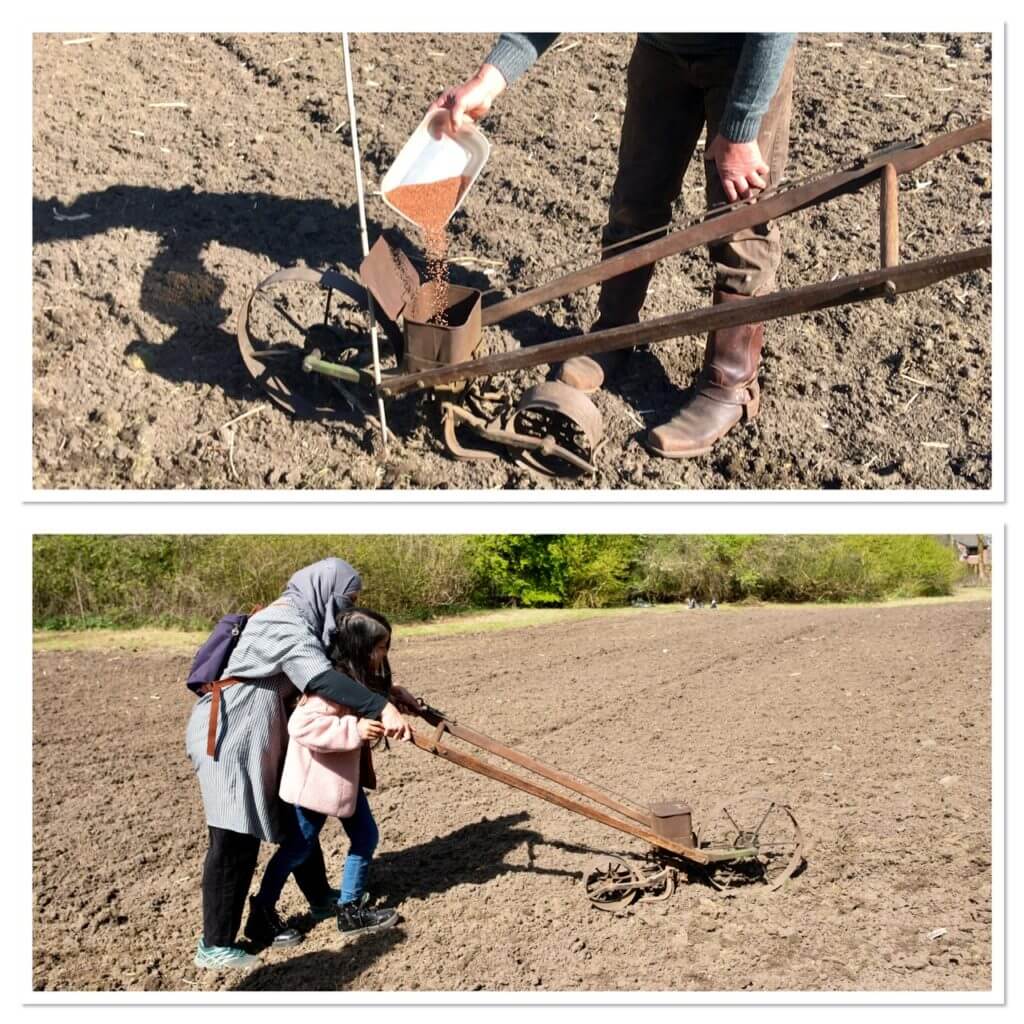
A Ground-up Revival Bringing Fashion Down to Earth
Today, this loss of hand making skills and reliance upon offshore, mechanised manufacturing, means that most of us have forgotten where our clothes come. But just as people have become more educated about food provenance, so people are now asking #whomademyclothes – a hashtag started by Fashion Revolution after the Rana Plaza fashion factory collapse in 2013.
Patrick has already done an enormous amount of work raising awareness for regional, sustainable fashion practices and gave a great TEDx talk that’s well worth a watch to find out ‘Why We Should All Feel Uncomfortable in Our Clothes’. I’m not sure he envisaged actually planting his own though but seemed to thoroughly enjoy it!
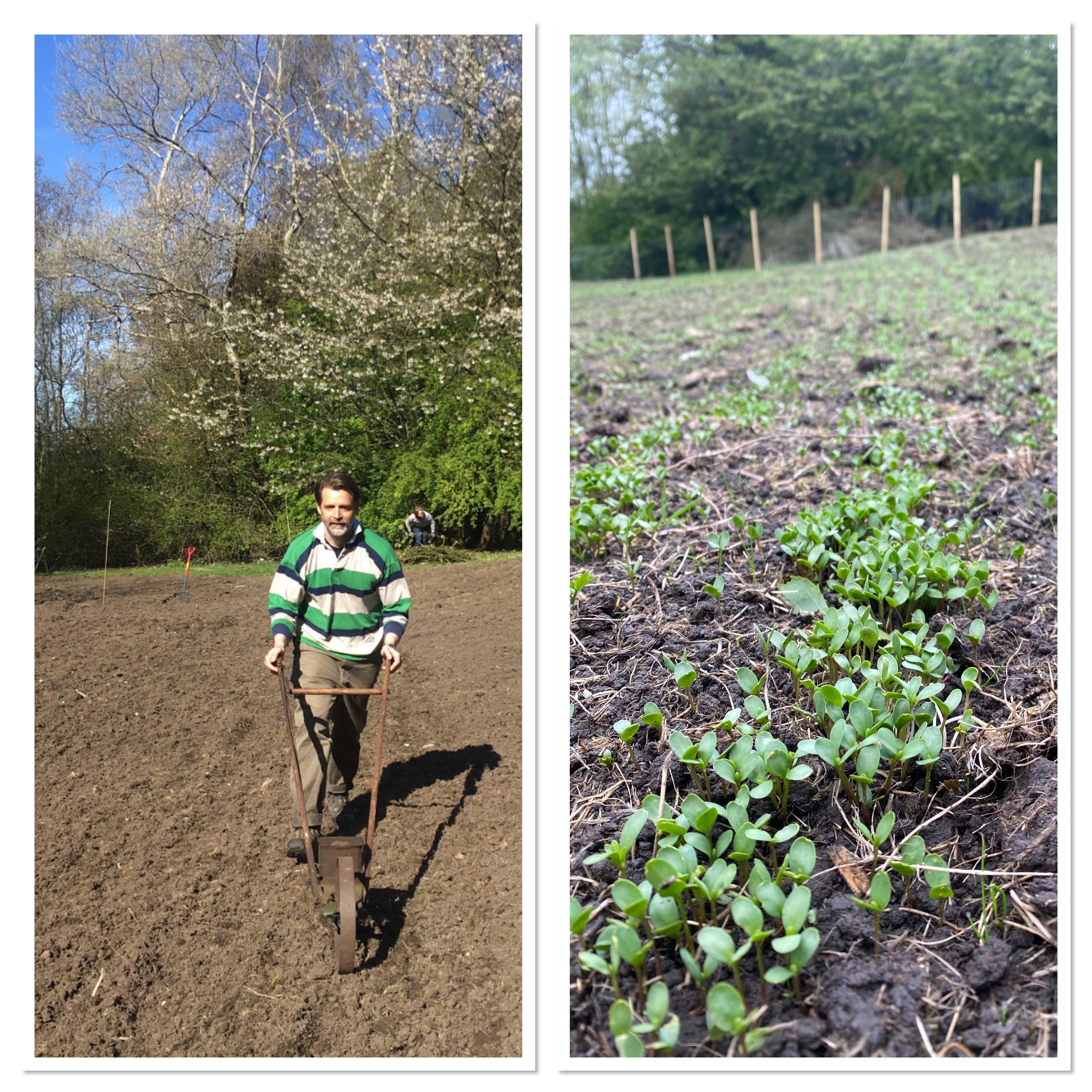
R: The progress our flax seedlings had made 3 weeks later.
Fibershed believe the question of provenance needs to go deeper than manufacturing – all the way back to the soil beneath our feet. Clothing doesn’t begin in factories, it starts either with farming or mining and currently 70% of all clothing produced annually is derived from extracted fossil fuels (i.e. non-biodegradable plastic that pollutes landfill.) We must now choose whether the clothing we buy comes from non-renewable petrochemicals or climate restoring plants. Fibershed are bringing the fashion industry down to Earth, quite literally by asking #whogrewmyclothes.
We are a global organisation made up of regional communities of textile artisans, specialising in these (somehow now) niche hobbies of natural fibre and dye crafts. But in a world dominated by synthetic cloth and colour, our simple, small-scale use of renewable materials is collectively creating an important rebellion.
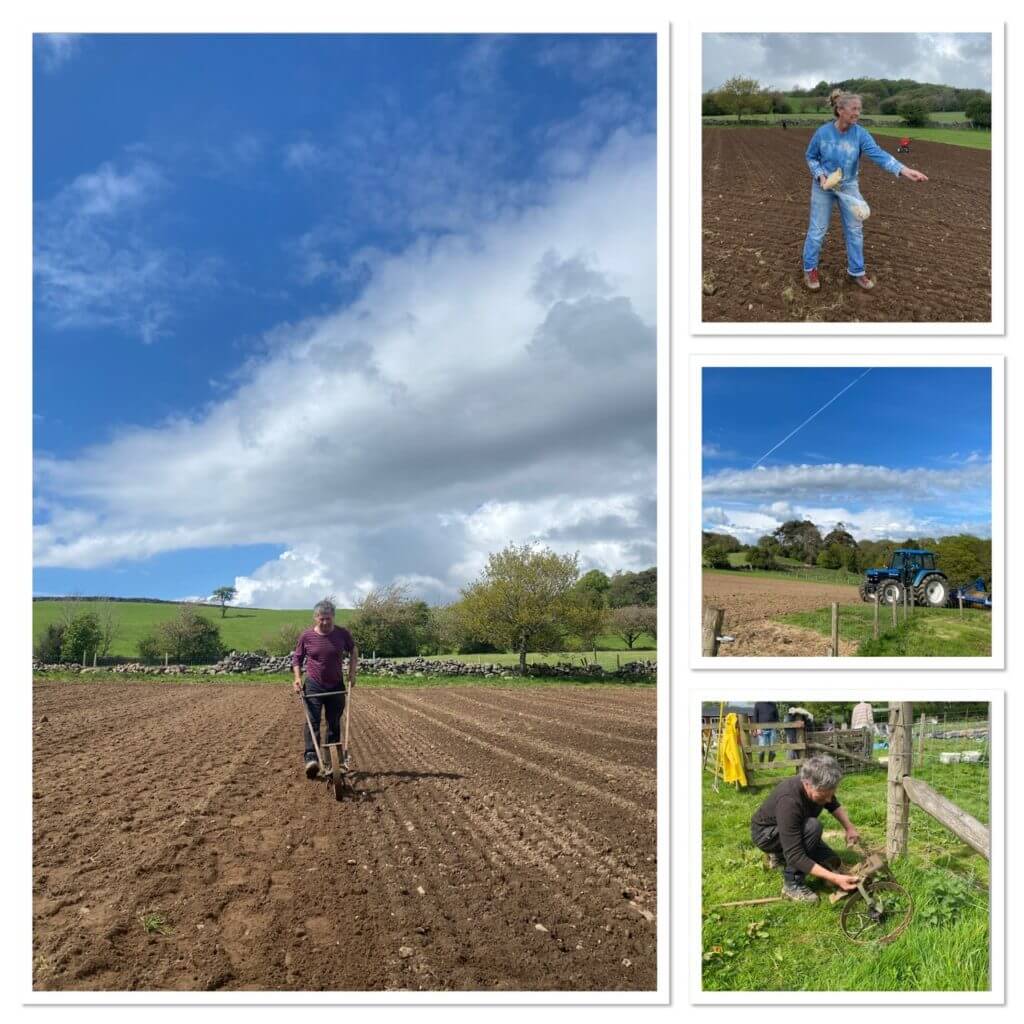
Incentivising the Reintroduction of Textile Crops to British Agriculture
Last Monday 17th May, Simon, Ann and I travelled up to Monkley Ghyll Farm in Halton to plant our reserve crop, using seed generously donated by Mallon Linen in Northern Ireland. Simon and Ann are both farmers and artisans who’ve helped keep the heritage of flax alive in the U.K. and whilst regenerating urban land, in the textile heartland of North West England is vital, for the upscale of production, we also hope to make textile crops viable once more, so called out for farmers wishing to trial flax and woad. Susan and Gavin Crawford are also farmers and artisans who generously offered to foster our crop on their land.
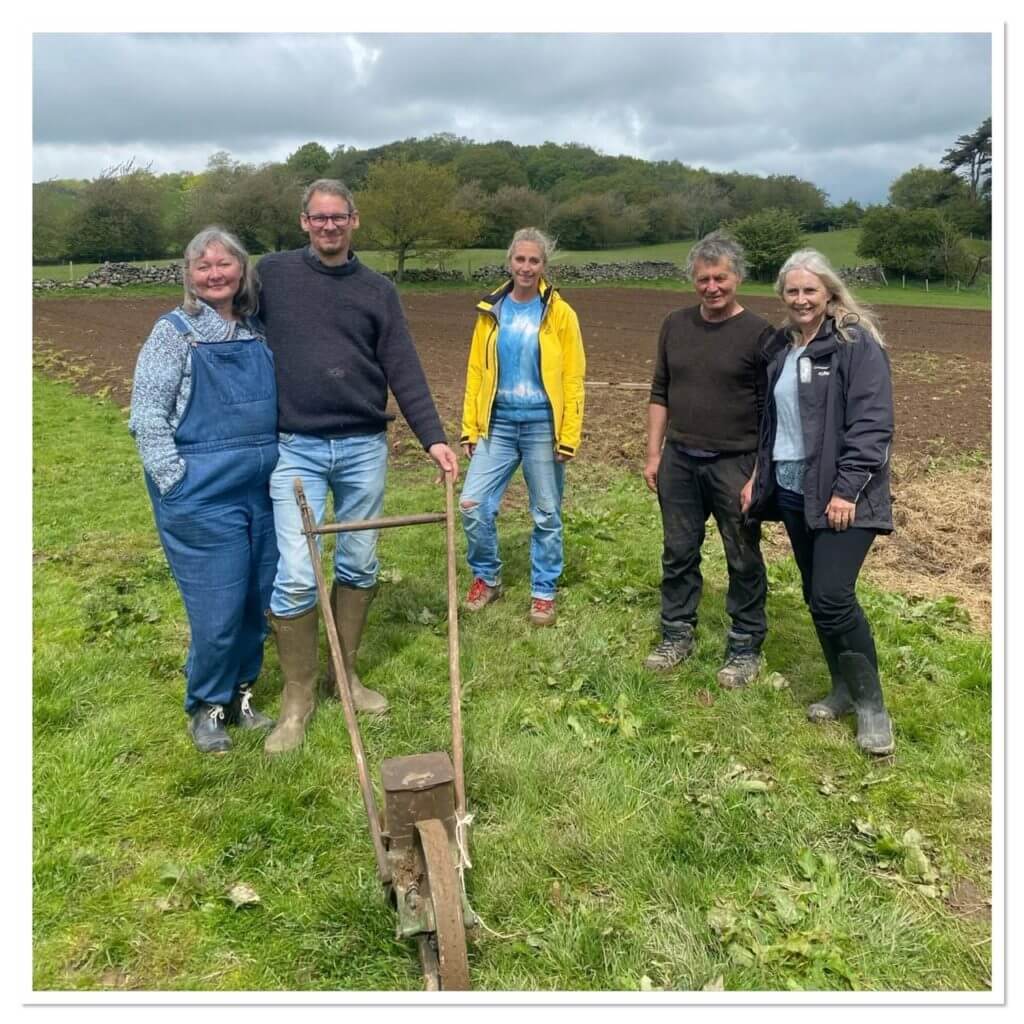
We had such a great day, even through a sudden downpour and where thrilled to see their neighbour’s tractor arriving on cue to cover over the seeds as we finished planting. We all have our finger’s crossed that these crops will thrive at both sites.
The seeds of a more regenerative future for the fashion industry have been sown. However, for the Homegrown Homespun team, the real challenges are yet to come! How do we make this sustainable product commercially viable within an economic system that favours mass overseas production and exploitative global supply chains all subsidised by (artificially cheap) fossil fuel use? Can the awareness this project raises help replace lost natural fibre and dye processing equipment, making textile crops viable for farmers again? Will we have a prototype pair indigo linen jeans in time for this October’s Biennial? With the kind of fantastic support this project has received already, we very much hope so!
Happening Next: Weeding and Workshops
Now the weeding begins! We welcome volunteers at our Higher Audley St site in Blackburn every Friday from 10am – 12pm and will be having one big weeding session at Monkley Ghyll on Friday 11th June from 12pm – 5pm although spaces are limited for this session so please enquire to email below to be added to the volunteers list (rather than just showing up.) Earlier the same day, I’ll also be planting a dye garden in Blackburn, so if you want to make a full day of it, feel free to join in with both activities.
This half term, Super Slow Way, the organisers of the British Textile Biennial would like share how much fun heritage textile crafts can be, so Lazy Kate Textiles and I will be teaching free taster workshops where you can try spinning, dyeing and weaving for yourself while helping us create a piece of community art.
Hand Spinning
Monday 31st May 2021 10am – 12:30pm and 1:30pm – 3:30pm
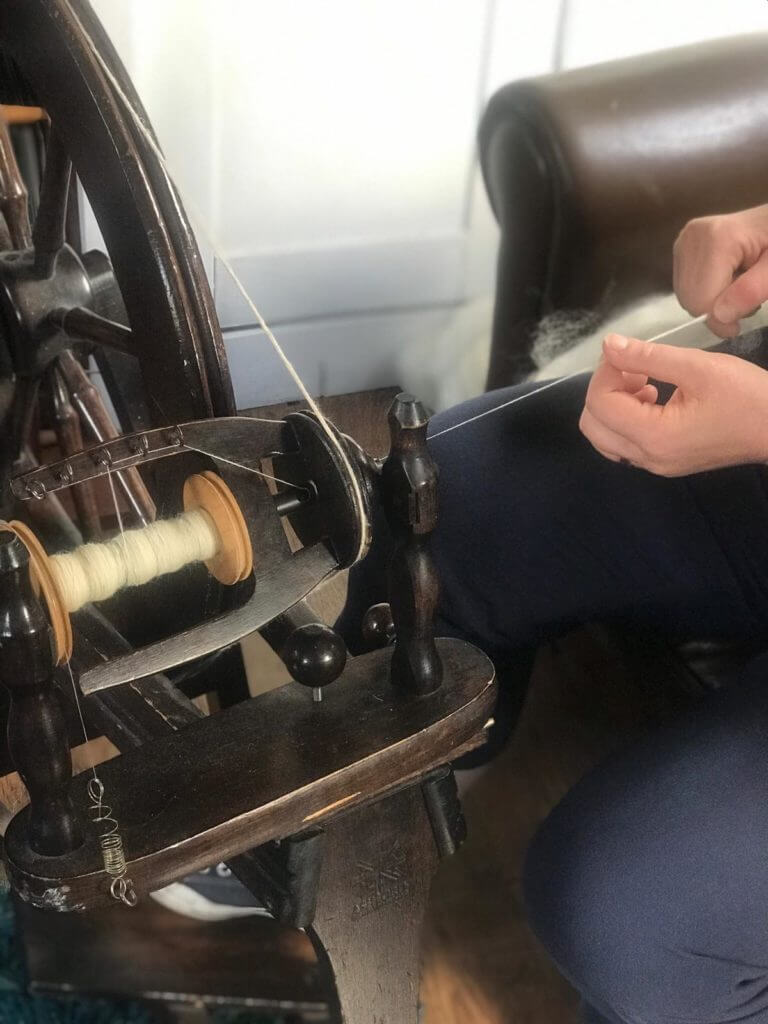
Natural Dyeing
Wednesday 2nd June 2021
10am – 12pm and 1pm – 3pm
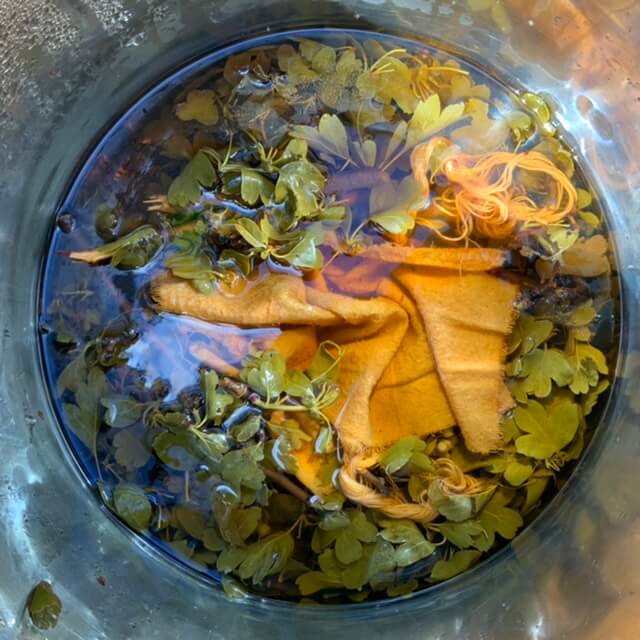
Hand Weaving
Friday 4th June 2021
10am – 12:30pm
1:30pm – 3:30pm
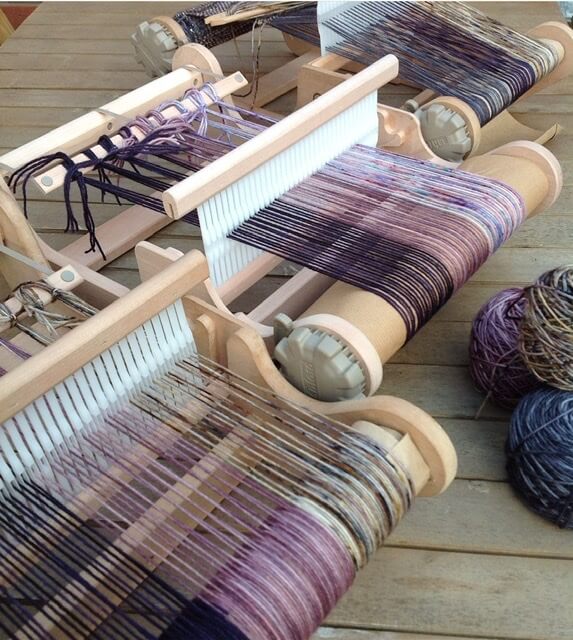
If you’d like to join in with one of these activities please call or email : Uzma: 07922 487950 / uzma@superslowway.org.uk There’s also a Homegrown Homespun Facebook group volunteers can join for updates.
